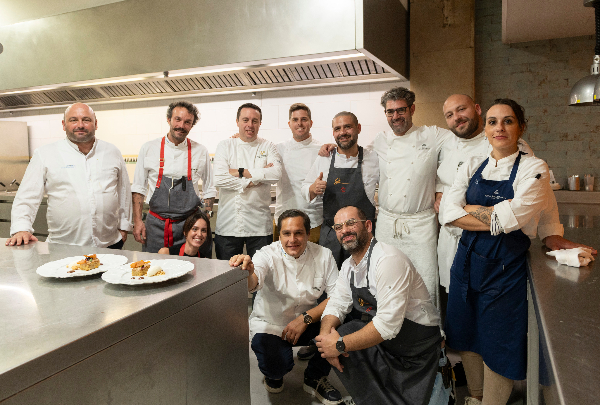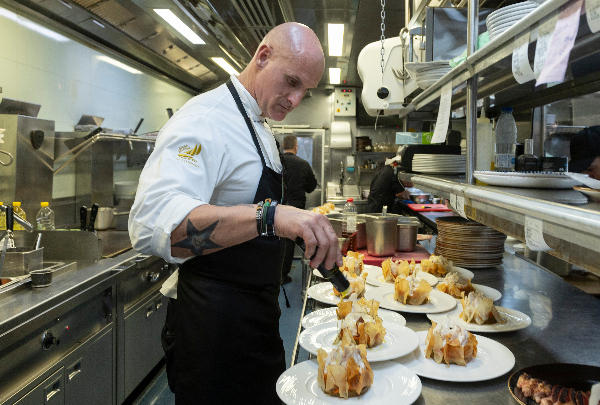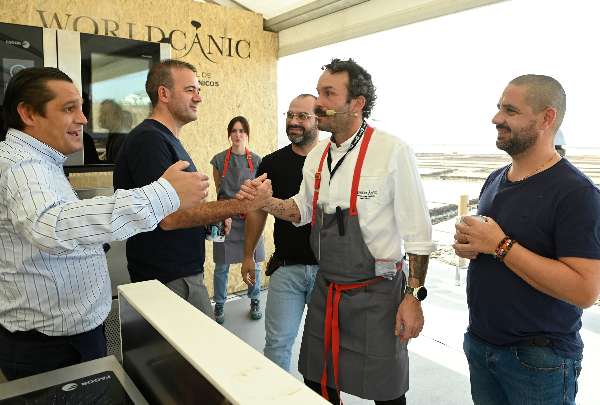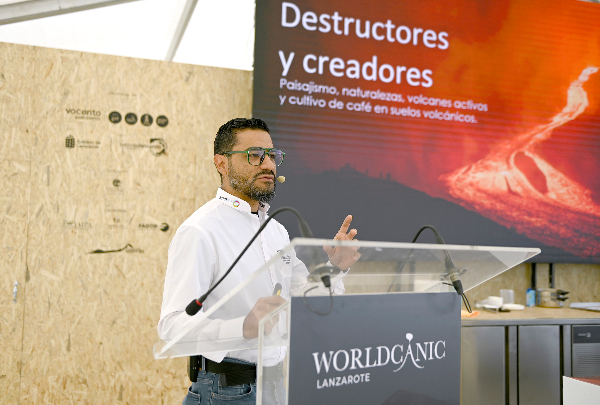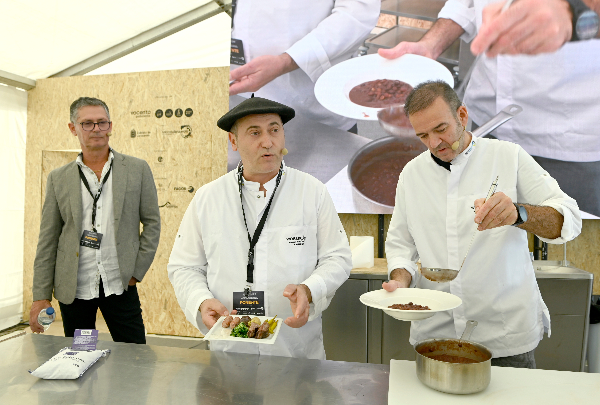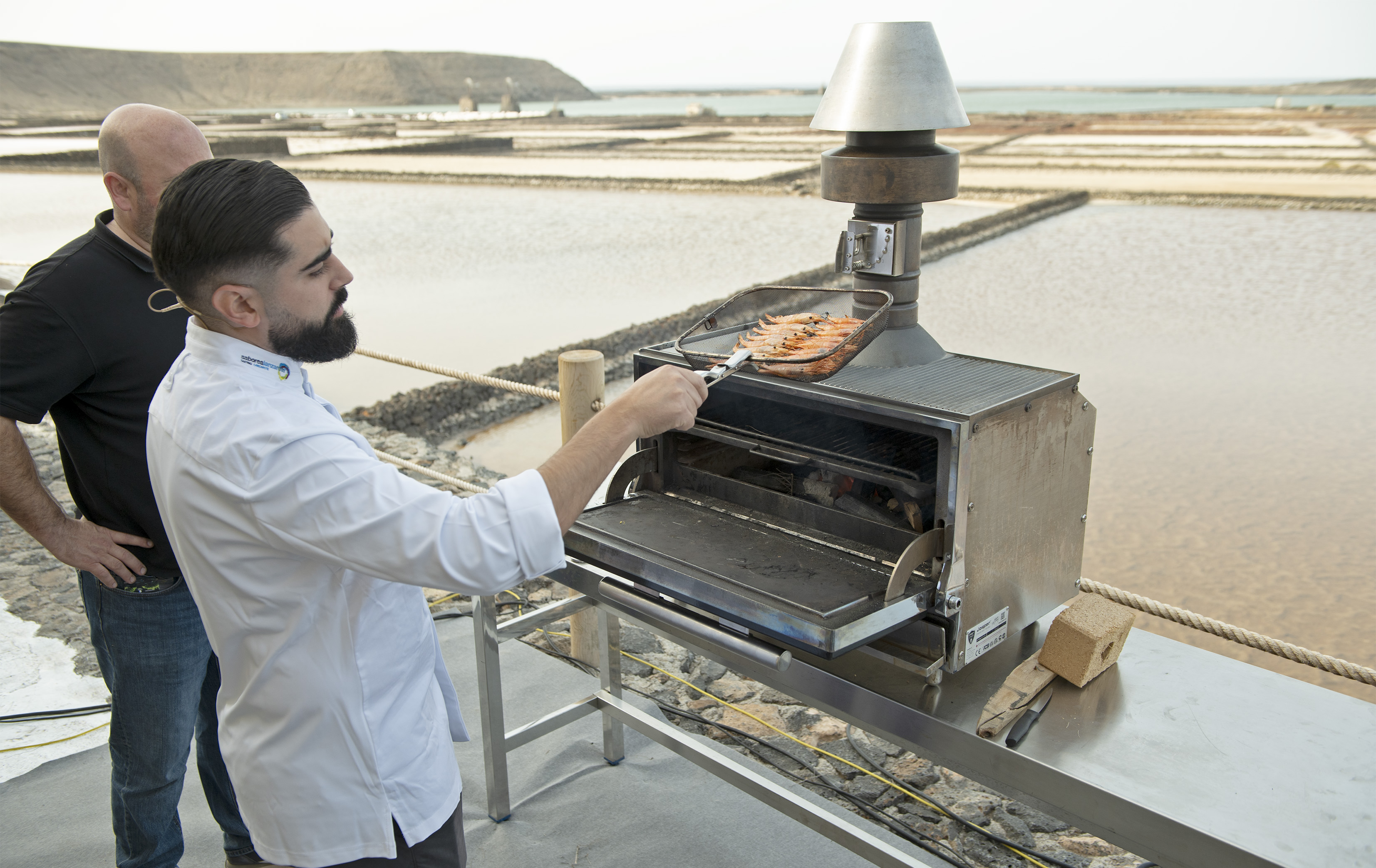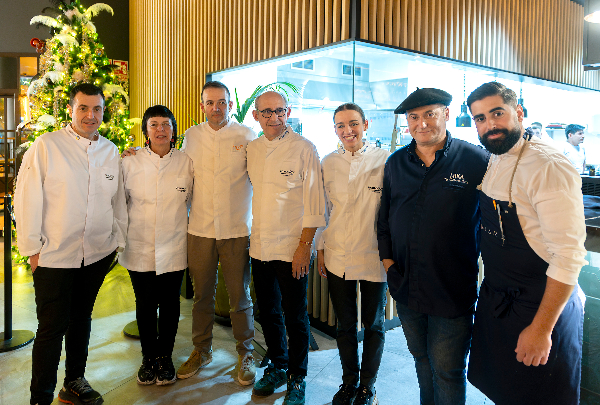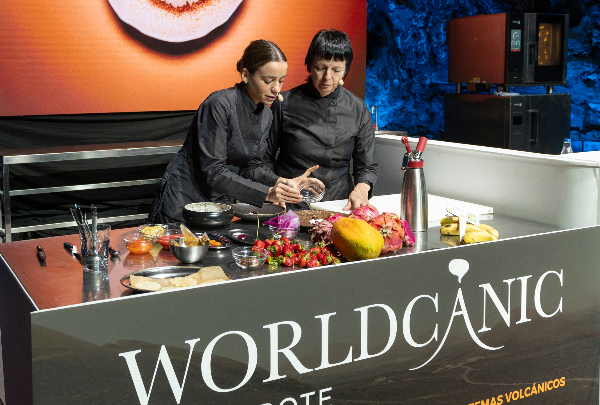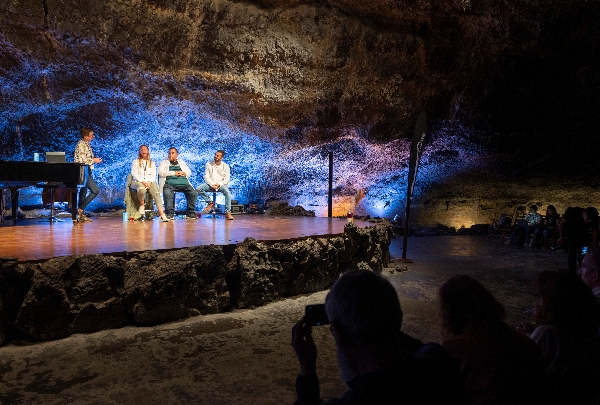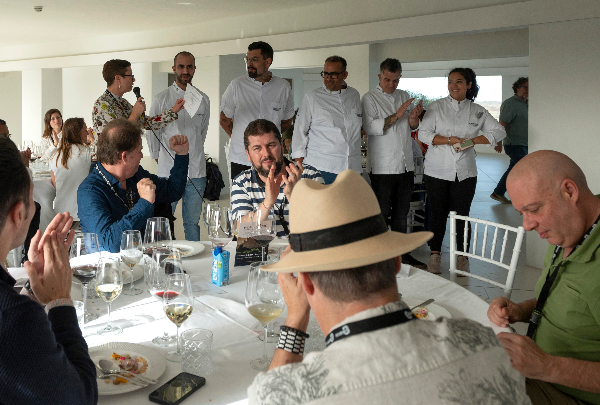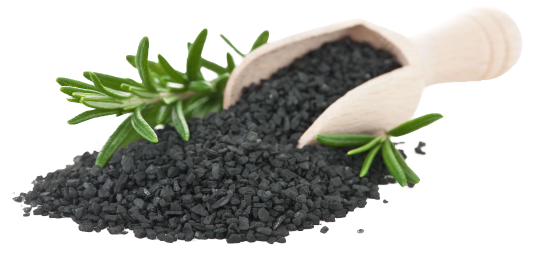News
"The future of local economies lies in valuing history and what is around us"
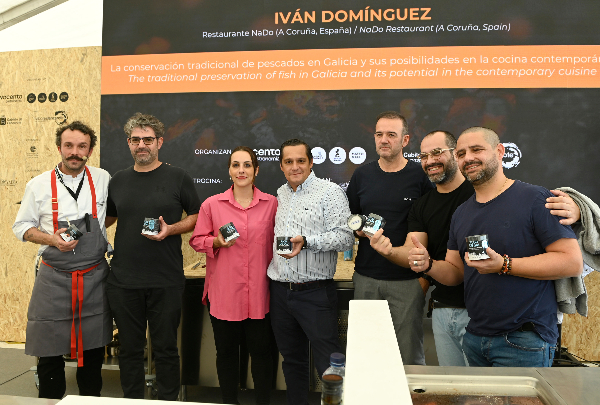
Salted fish, barbecue and the search for specialisation are the focus of the second day of Worldcanic.
The uniqueness of the volcanic areas continues to manifest itself in Worldcanic through the richness of its sea and land. The product will not be absent from the second day of this International Congress on Volcanic Cuisines and Ecosystems because, as Toño Morales (owner of Vegacosta Ecofinca) explained, it is essential to "defend our territory and respect the work of all the previous generations who have looked after it. And the best way to do this is to continue to cultivate these lands and consume the products they produce".
This defence of the local and original product has taken place in the unique area of the Janubio Salt Mines, the first industry in Lanzarote, born at the beginning of the 19th century, which was not only an important source of local employment, but also vital for an island where refrigeration technology was slow to arrive.
Likewise, for Galician sailors, salt was the best ally for preserving the fruits of their endless labours, as demonstrated by Galician chef Iván Domínguez, who spent seven years on board a ship before becoming an expert in land-based cuisine, and who attended the congress to defend, from his restaurant NaDo (A Coruña), a tradition he fears is being lost. "Younger palates no longer accept food in brine or salted food, methods that I believe in and practice", he asserted, demanding that "all of us, prescribers, consumers and chefs, are responsible for the fact that this industry no longer makes money, which causes the disappearance of good producers; we must give it back the value that it really has". In love with his land and its traditions, he is a champion of the Atlantic Cuisine label, which he shares with the Canary Islands, "although we need to start giving it a surname, as factors such as landscape, culture and history create differences".
For the speakers at this third edition of Worldcanic, these differences have meant a lot of homework. As was the case yesterday with Paco Pérez, Ricard Camarena and Fina Puigdevall, today two more restaurants presented their vision of Lanzarote's products: Isaac Loya (El Balneario de Salinas*, Salinas, Cantabria) and the brothers Óscar and António Geadas (G Pousada*, Bragança, Portugal) have been able to rethink their interpretation and present their proposal to the Congress.
The first to unveil it was Isaac Loya, who was on the island for the first time. The Asturian worked with a vieja - "a fish that reminded me of red mullet" - and a grouper. Loya offered a different approach to the vieja, a fish that is usually cooked on the grill in Lanzarote, but for which he proposed "a light cooking because the grill makes it softer", he explained to the audience, as he proceeded to confit it and accompany it with some seaweed from the Lanzarote sea as a salad. In this way, according to the chef, "the texture of the fish changes". A fish "with many possibilities" that the chef advises the island's restaurateurs to protect: "Keep it for yourself, don't let it leave the island, otherwise it will happen to you as it did to us with the virrei, which ended up leaving Asturias, losing its identity and becoming a very expensive fish".
His second proposal was based on a grouper "different from ours, much greyer". A piece grilled "with only the skin marked, so that the fat melts and doesn't just taste of smoke", explains Isaac Loya, taking the opportunity to defend "taking a risk in the kitchen, playing with the cooking to the limit, leaving the fish a little raw so that it is only cooked on the way to the table".
Portuguese brothers Óscar and António Geadas, sommelier and chef at the restaurant G Pousada* (Bragaça), did the same with a recipe that combines sea and mountain, "typical of Portuguese gastronomy", as they put it.
The recipe was for Alentejo pork with meat and potatoes from Lanzarote, a symbiosis that the Portuguese understood perfectly, because at home they are the first to claim that "we cannot turn our backs on our regions or abandon tradition". It is a dynamic that makes perfect sense to them, because "the people who come to our restaurant are mostly foreigners and they want to get to know our land through our food. Caviar can be eaten anywhere in the world". For her, this is a circle that "is also the future of the local economy", as in the case of chestnuts, "an endogenous product of our economy that we are working on, for example with lobster, to improve and reactivate".
But beyond the new face of the guest chef, who better than the island's chefs to revalue the local gastronomic culture? This was demonstrated on the second day of the congress by chefs Germán Blanco and Paco Medina, impeccable ambassadors of a local gastronomy that has the added problem of having to deal with the demands of big tourism. Germán Blanco, chef at one of the island's most prestigious restaurants, Brisa Marina de Juan el Majorero, lives this dilemma every day. "In Lanzarote we basically live from tourism, but it is important to find a balance between what the visitor demands and what you want to offer them. Our mission is to teach them well so that they choose you," he admits.
The new generations are following in this footsteps, as demonstrated by Paco Medina, head chef of the Alarz restaurant (Arrecife Gran Hotel & Spa, Arrecife), who recognises the need to be honest in this endeavour: "If we want the product to be recognised, it is very important to be sincere in what we offer. Lanzarote is very small and there isn't always enough produce for everyone, so you can't lie if what you serve that day isn't a Tinajo tomato or a La Santa prawn".
Pulses and Guatemalan coffee, on stage
As well as products, the day also saw the presence of legumes and coffee. The former were the protagonists of a tripartite presentation in which Basque chefs Roberto Ruiz (Hika Gastronómico, Villabona, Gipuzkoa) and Félix Belaunzaran (Iriarte Jatetxea, Berrobi, Gipuzkoa) shared the stage with Toño Morales, owner of Vegacosta Ecofinca (Tinajo, Lanzarote), to highlight a product that is often forgotten in the gastronomic world.
Roberto Ruiz, chef and ambassador of the Tolosa bean, emphasised that the culinary traditions of the Basque Country and Lanzarote are not so different: "The culinary history of the Basque Country is very poor, with a lack of products and resources. Something that links us to what is happening on this island. We ate turnips and chestnuts 300 years ago, cultivated on acid soil, with lots of rain and little sunshine. There, plants climb to seek the sun; here, they sink to escape it". In this culinary panorama, the arrival of the Tolosa bean represented a great step forward, with a tasty product with a high energy content.
In this way, the bean became an integral part of Basque cuisine, but only at home. According to the Hika chef, "sometimes we don't take our own beans into account because we are so used to them that we don't give them the value they deserve". This is why his commitment to this product and its inclusion in his restaurant was an important boost to its dignity. Something that Félix Belanzauran agrees with, admitting that "it took me a while to understand that what our own farm gave us was worthy of being on the restaurant table".
Something similar happened in Lanzarote after the tourist explosion of the 1960s. "Tourism came to the island, but our gastronomic culture did not reach the hotels and their restaurants," Toño Morales admits. A mistake that he is now trying to rectify with the recovery of the local product. In this sense, Morales defends the work done with the Tolosa bean: "We should do the same here with some of our varieties, such as the Lanzarote lentil. We should do the same here with some of our varieties, such as the lentils from Lanzarote, to work genetically on these species to give them their uniqueness".
The informative counterpoint of the day was provided by Diego Rizzo, who, as a photographer, showed the participants of the congress the beauty of the volcanoes of his native Guatemala, including the lakes of Atitlán or Fuego, Santiaguito or Pacaya, volcanoes that are currently active in his country. As Diego Rizzo himself pointed out, "volcanoes are not only destroyers, they are also creators". Creators of beauty, but also of "numerous opportunities, as in the case of our coffee industry. The lava creates new soils, and the ash makes other soils more fertile, providing an optimal environment for certain crops such as coffee," he argued. The result is an exquisite coffee that conference delegates were able to sample thanks to ANACAFÉ, Guatemala's national coffee association.

